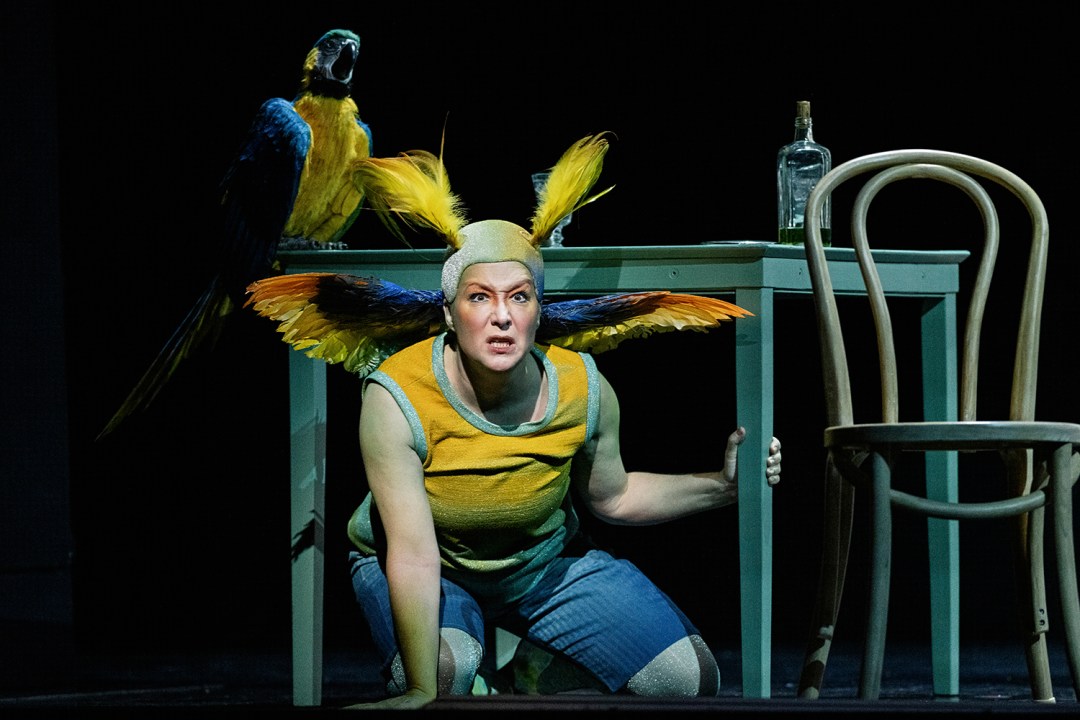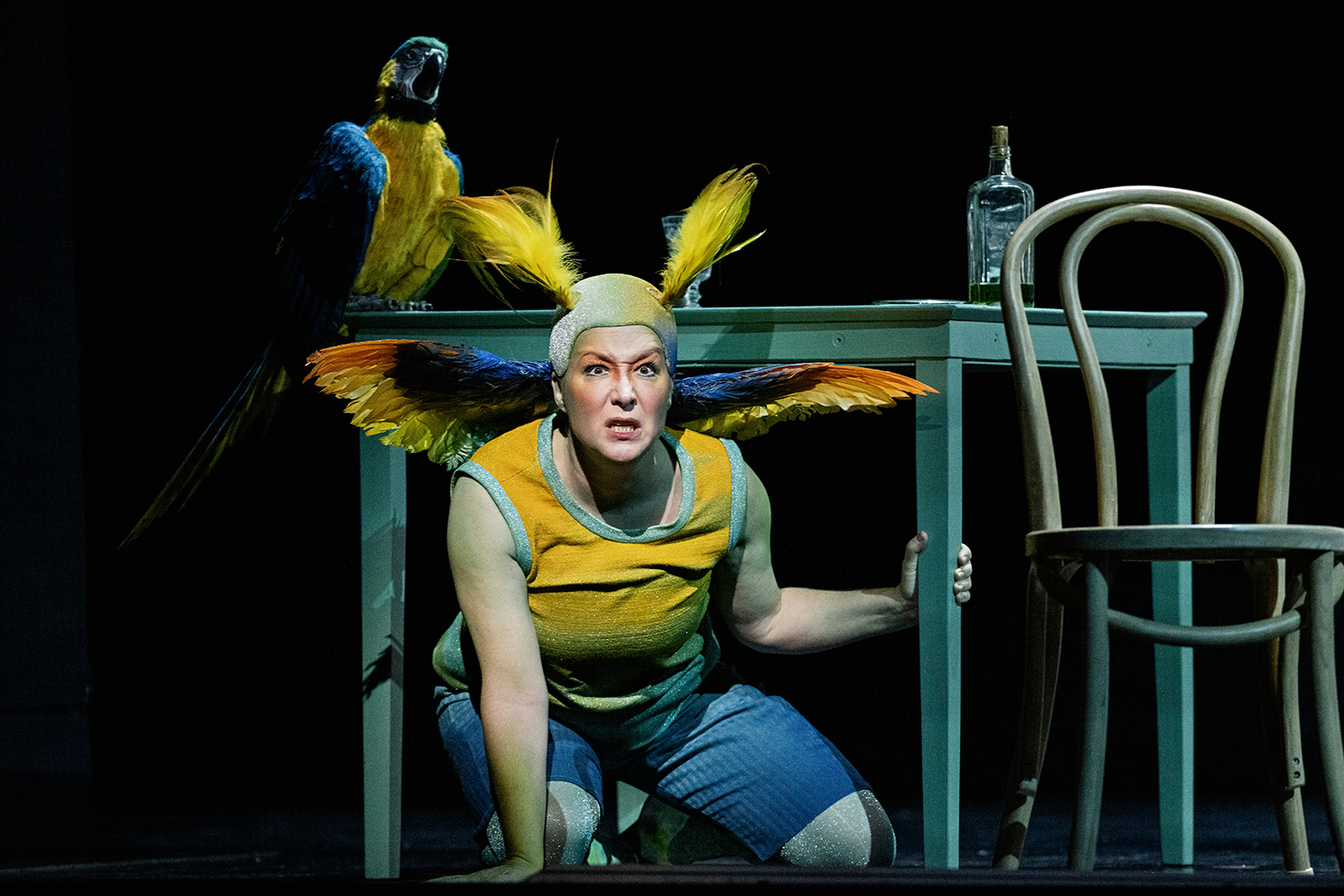I couldn’t love anyone who didn’t love Offenbach’s The Tales of Hoffmann. Everything – everything – is stacked against this opera. Offenbach left the score unfinished when he died, tormented with gout and pilloried by bores, at the age of 61. Some of its best-loved numbers were upcycled from his earlier hits, and at least one isn’t by him at all. Yet somehow, it lives. More than that, it soars: a tale of disillusion that glows with wonder and hope; a hymn to the sweetness of life and the miracle of art, held together against all logic by the sheer charisma of a composer who shot for the moon and fell among the stars. ‘Opéra fantastique’ was Offenbach’s own description, and he’s not wrong.
I’m not saying that Michieletto doesn’t care about this opera. I just don’t think that he really gets it
So, does Damiano Michieletto – the director of the Royal Opera’s new production – love The Tales of Hoffmann? On balance, I’d say so. Does he love it with the kind of irrational, wide-eyed, delirious passion that it deserves and demands? In his own way – superficially chilly and slightly too knowing, like so many modern directors – perhaps he does. Sort of. For some of the time.
Certainly, he doesn’t stint on fantasy. There are glitter-clad demons, masked beauties and dancing animals, all very Hoffmann-esque. A monstrous eyeball swivels above the stage during the tale of Olympia (Olga Pudova). Child ballerinas pirouette in tutus and ghostly cellos descend from the skies as poor Antonia (Ermonela Jaho) prepares to sing herself to death. Hoffmann’s Muse (Christine Rice) is preceded by a bevy of green-clad dancers. These hallucinations are fuelled by something stronger than beer and melancholy, and we see Hoffmann (who ages from schoolboy to grey-haired wreck over the course of the action) slumped over his absinthe in a sparsely furnished bar.
As operatic updatings go, there’s nothing gratuitous here: certainly, none of the drug use, brothel scenes and Freudianism-for-Dummies of recent continental stagings. Michieletto is one of the Royal Opera’s safer pairs of hands and this multinational co-production arrives in London with a luxury cast, headed by Juan Diego Florez in the title role. By any objective standard, it should be a treat. But the heart doesn’t lie, and even with a conductor as assured as Antonello Manacorda it’s hard to deny that whole fabulous firework display doesn’t always ignite. Florez is a stylish and attractive singer, but on the first night, at least, that shapely voice seemed to lack amplitude; and as an actor he never clicked with any of the three sopranos cast as his three love-objects.
That’s the weirdest thing – Michieletto casts three different singers in a role which Offenbach intended to be sung by the same performer. We’ll come back to that; for now, let’s just say that Pudova made an unusually convincing mechanical doll, with a plaintive edge to her bright, sad coloratura; that Marina Costa-Jackson (as Giulietta) was every inch the predator and that Jaho was intensely moving, generating an emotional intensity in her scenes with her father Crespel (Alastair Miles) that made Florez seem even more two-dimensional. (That was also an issue whenever Florez was on stage with Alex Esposito’s sulphurous Lindorf.) Jaho received a noisy ovation, and she’d more than earned it.
Still, you felt for Pudova and Costa-Jackson. Dividing this triple role between three singers made no more dramatic sense than – well, than making Antonia a frustrated dancer instead of a singer, or turning Hoffmann’s confidant Nicklausse (Julie Boulianne, tender and expressive in her feathered head-dress) into a parrot. Literally, a parrot. There was even a stuffed one on stage; it flapped its wings occasionally. Here, I’ll admit, Michieletto lost me. True, The Tales of Hoffmann is all about crazy, impossible love. And true: lovers tend to be jealous. I’m not saying that Michieletto doesn’t care about this opera. I just don’t think that he really gets it.
At Opera North, there’s more grand guignol from Offenbach’s greatest disciples, Gilbert and Sullivan. Jo Davies’s production of Ruddigore dates from 2010 but it scrubs up very smartly indeed, complete with a filmed prologue, seemingly inspired by Bagpuss, which plays over the opera’s (now rarely-used) original overture. It’s all updated to the era of P.G. Wodehouse – plus-fours and flapper-dresses – and the lively ensemble cast really knows its business, with Amy Freston (Rose) and Dominic Sedgwick (Robin) sounding fresh and exuding goofy, Bertie Wooster-ish charm.
John Savournin swirls his cape for England as Sir Despard Murgatroyd, Xavier Hetherington is a leaping, hornpipe-dancing triple threat as Dick Dauntless, and Helen Evora, brilliantly, plays Mad Margaret as a ‘I’m mad, me’ kook rather than a gothic caricature. If the (genuinely spectacular) supernatural antics of Act Two take a while to arrive, that’s the fault of G&S, not the revival director, James Hurley. Trust me, they’re worth the wait.








Comments